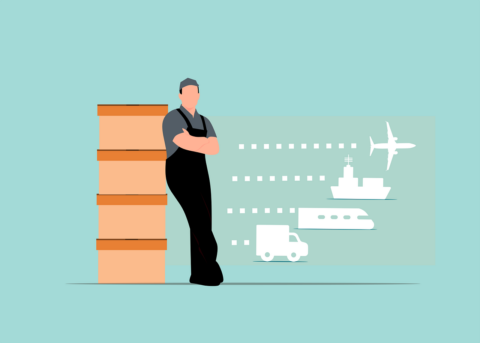Contents
E-commerce has greatly transformed the retail sector, and it just keeps on changing and upgrading over time. It is a platform that provides a digitalised environment, where people can shop anytime and anywhere as long as they have access to a reliable internet connection. Simultaneously, e-commerce makes it possible for businesses get to reach a wider scope of prospective leads and generate more sales. This program involves trading data and digital funds to accommodate online business transactions between two or more parties.
The success of online commerce was further fueled by the new normal: social isolation and the closure of some physical stores in many parts of the world. Online services have been the best and safest option for everyone enforced to stay at home. Hence, while the pandemic has truly created a time of uncertainty for many individuals, e-commerce seemingly remains to propel in a positive direction.

However, e-commerce—as it is known today—didn’t actually ascend overnight. The history of e-commerce dates back to the 1960s when Electronic Data Interchange (EDI) was first developed to replace traditional fax and mail via online transfer. E-commerce has undergone major evolutions since then. And, fast forward to today, it can be clearly seen just how far the industry has risen from the ground. A slew of technological advances in the industry has paved the way for suchlike dramatic growth in web-based marketplaces. But, this is just the beginning of more breakthroughs in the future. Here we give you some glimpse of the many foreseeable e-commerce trends to expect in the coming years. While some of them already exist and play a huge part in our daily lives, others are almost on the brink of becoming a reality.
So, let’s take a look at what the future e-commerce has in store for us and see if it could be a gamechanger in the field.
Emerging markets will take over
That emerging markets, such as India, China, Brazil and South Africa, are expected to be the main players in the future e-commerce industry is no longer surprising to us. These countries have recently presented drastic growth in their economies, which is why a whopping 3 billion potential buyers from these nations will definitely have more access to the Internet by next year. That could be equivalent to more or less 20% of global retail sales, which sounds promising not just for those developing markets but also for the giant businesses around them. There’s a high possibility for pre-existing businesses to diversify and cater towards new local audiences worldwide. In time, these emerging countries might also take that as an opportunity to make room in the industry and tailor their products and services to overseas consumers through e-commerce.
Physical stores will still survive
Some people predict that it won’t be too long before brick-and-mortar stores step down and make way for much greater developments in e-commerce. While it’s hard not to deny the fact that e-commerce success is far outpacing the sales from physical stores, they still have a valuable role to play in the retail industry. In fact, a successful e-commerce business without a pop-up store can be a huge downside. After all, a majority of consumers are expected to keep the typical in-store shopping experience. To avoid missing out on a promising number of potential customers, big brands and small businesses alike will need to keep their physical stores afloat in the foreseeable period.
E-commerce services will be automated
Voice-assisted technologies like the famous Google Home and Amazon’s Alexa will open the door to an automated e-commerce experience. Of course, some critics might say it’s still a bit of a leap into the unknown to order nonspecific products without checking out their features and qualities. In that case, certain use of keywords and artificial intelligence (AI) will be implemented to let these voice assistants identify the customer’s needs and provide a 24-hour service. This will make reordering super easy, like, for example: “Okay Google, put Pantene Pro V shampoo in my shopping cart.”, and you’re off to go! With this amazing feature, online businesses can possibly save time and resources while reducing human failures at the same time.
Delivery drones will operate
While it seems a bit odd to imagine delivery drones flying all over the community, many food companies have already confirmed that these would surely be one of the most sought-after developments in e-commerce. In fact, Amazon has been conducting initial tests to determine the viability and effectiveness of delivery drones since 2013. Delivery drones are said to be capable of keeping products in different volumes safe, allowing a smooth shipment even without human control. This might result in a significant reduction of freight costs, human delivery errors, and roadside accidents. Hence, the possibility of having delivery drones in a not-so-distant future will likely increase to a point.
AR, VR and Videography will change the face of marketing
The use of both augmented reality (AR) and virtual reality (VR) devices will provide consumers with a closer look at the items of interest, allowing them to have a more engaging online shopping experience. They can check out products from different angles through a VR headset, which provides a more realistic viewing compared to two-dimensional (2D) images. In addition, videos will be a fantastic tool to immerse shoppers in the e-commerce world and spark a sense of entertainment and interaction.
The Bottom Line
The message of this article is clear: not only is e-commerce here to stay, but it will also continue to rise and develop at some point in the future. These persistent technological and infrastructure developments in the industry are just a positive indication that the future is much brighter and more scalable for e-commerce sectors. It’s not too late to enter this venture, whether as a consumer or an entrepreneur. There are endless resources and opportunities for startup coaching or business funding, so make sure to exploit them wisely. Getting some inspiration from the e-commerce trends presented above will prepare your young firm for the biggest changes in the industry.



